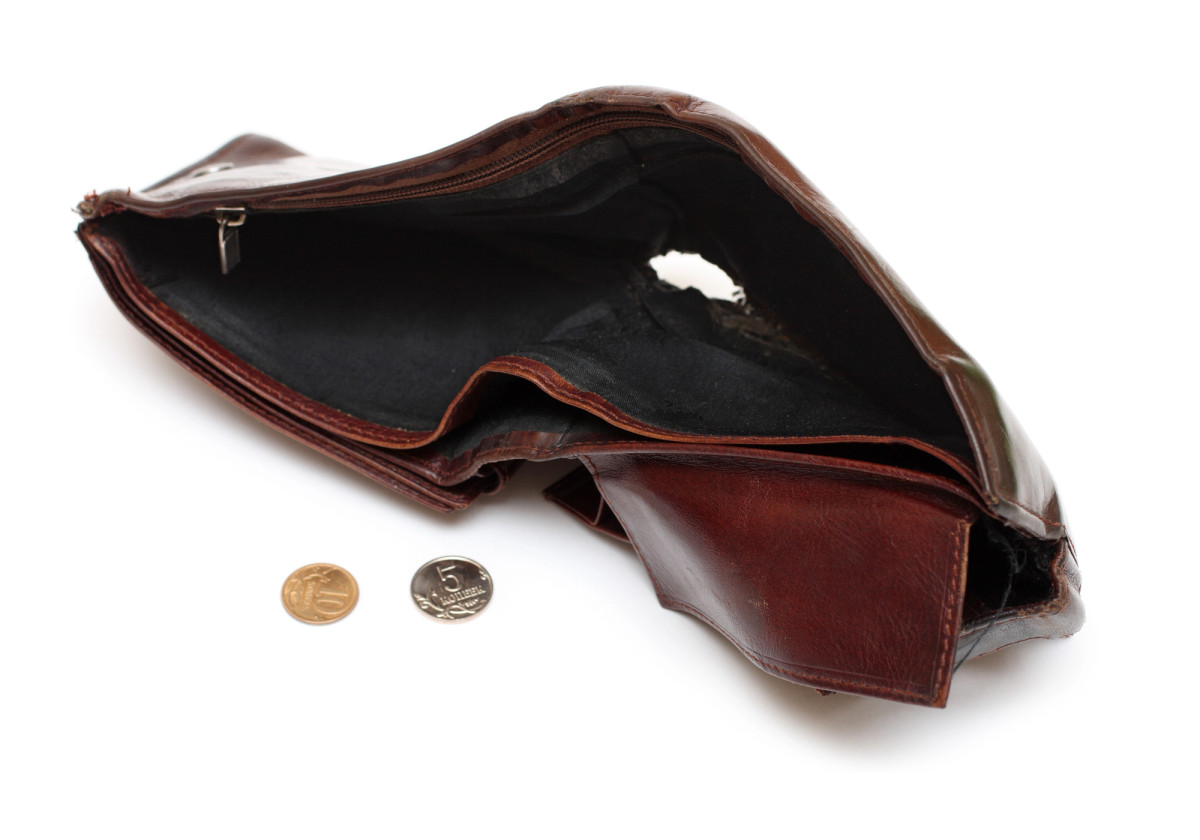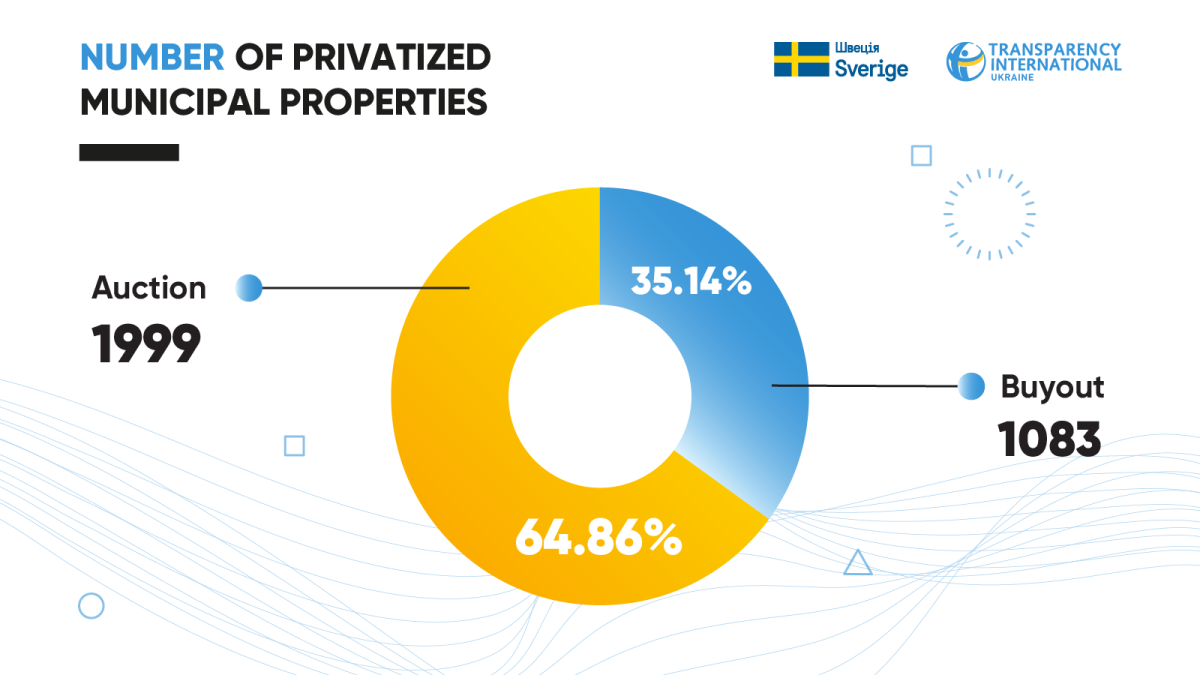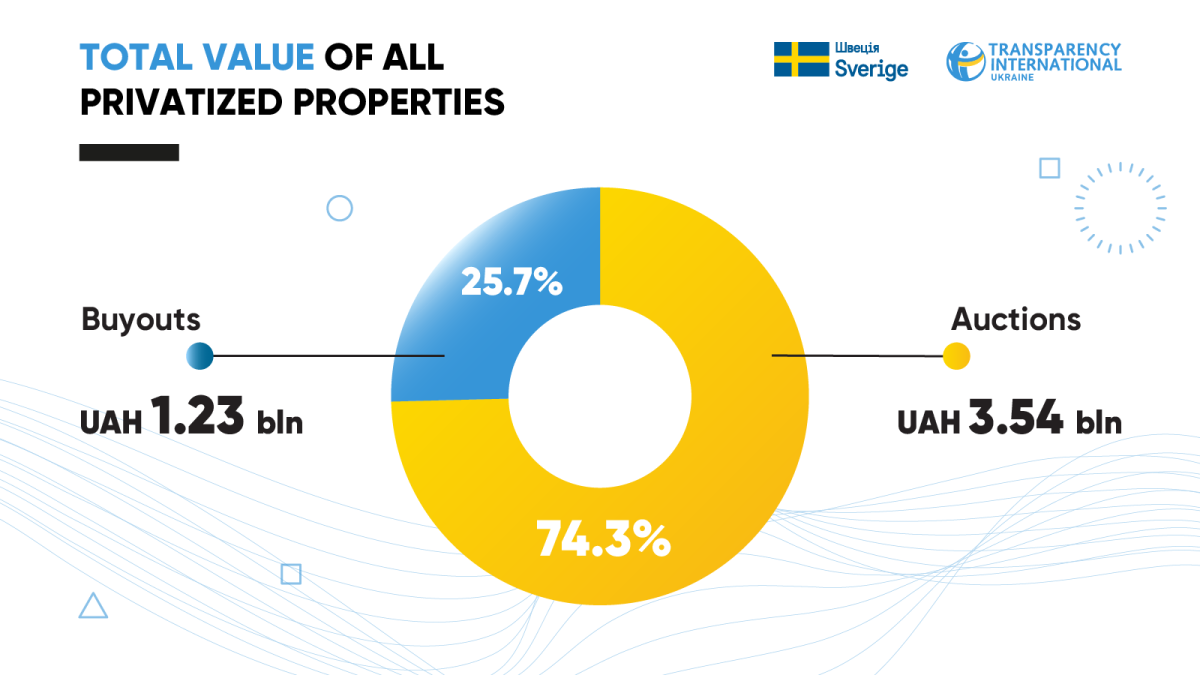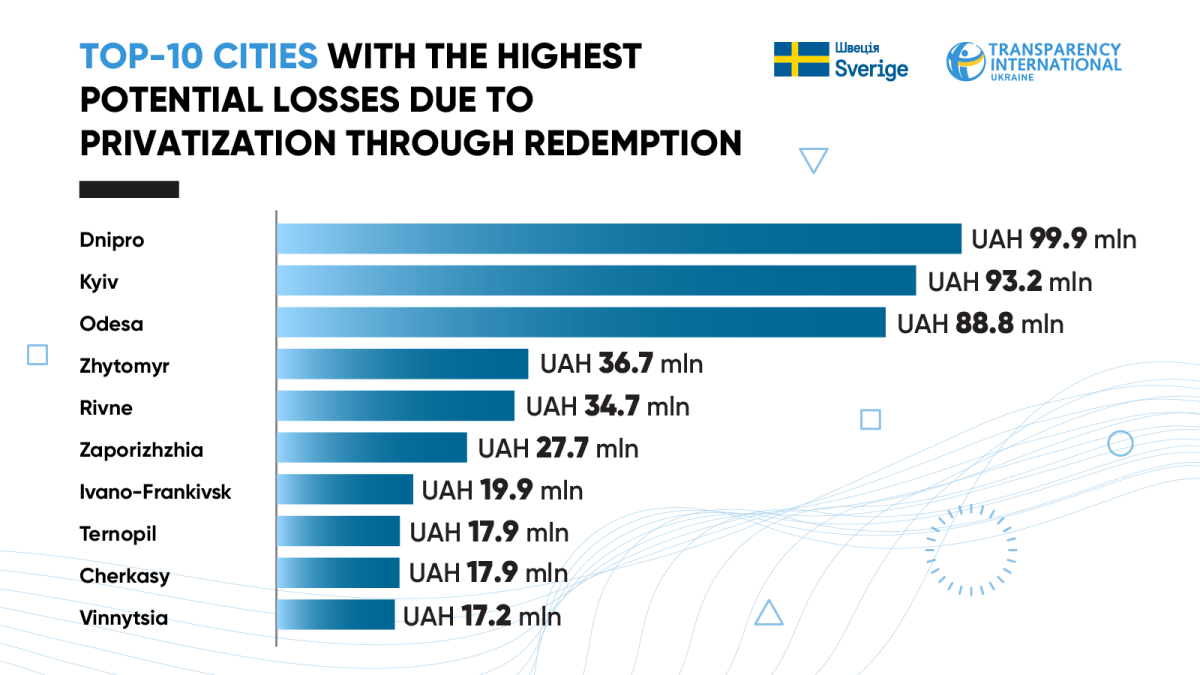

For almost 6 years, communities have been selling their property at privatization auctions through Prozorro.Sale. Due to competition, the price in them is growing, and the total sales revenue has exceeded UAH 5 billion. However, a significant part of assets is withdrawn from municipal ownership in a less transparent and completely non-competitive way—through the redemption of leased property.
We at Transparency International Ukraine analyzed the results of privatization in 82 cities and found that their budgets might have received UAH 552 million less due to the sale of property in a non-competitive way.
Auction vs. Redemption
Privatization of municipal property can happen in two ways: through an auction or redemption of leased property.
At the auction, the starting price of the asset is determined by its book value (usually it is lower than the market value), and the final price is determined by the results of bidding between potential buyers, which contributes to the increase in the value of the object due to competition. According to the analytics module of the Prozorro.Sale system, since 2018, the price at auctions for the sale of municipal property has increased by almost 62% on average.
Redemption is the right of the lessee to purchase the leased object if they have made integral improvements (for example, reconstruction or extension) in the amount of at least 25% of the market value of such object. Within this mechanism, bidding is not conducted, and the price is determined by the results of property valuation and does not change.
In 2019–2024, more than a third (35%) of all privatized municipal property objects in the cities under study was acquired through the mechanism of leased property redemption. At the same time, the amount under the sale price of such objects was only slightly more than a quarter of the total value of all privatized objects. This disproportion suggests that the economic effect of the redemption mechanism is lower compared to privatization through auctions.
In at least 19 cities, including Kropyvnytskyi, Uzhhorod, Zaporizhzhia, Sumy, Odesa, and Dnipro, redemption was preferred over auctions, and in 3 cities (Horishni Plavni, Svitlovodsk, and Chornomorsk) all objects were privatized in this way.
Of course, the sale price of municipal property, both at auction and through redemption, can vary significantly depending on their type, area, location, and other characteristics. Therefore, to compare the economic effect on budgets from the use of auctions and the redemption mechanism, we used indicators of the average cost of asset sale for each of the mechanisms.
The results of the analysis showed that in cities where both privatization mechanisms were used, the average value of objects sold at auctions was 45% higher than the sale price through redemption. This means that communities might have potentially lost almost half of their revenues through the sale of municipal property in a non-competitive way.
Selling everything through auctions
If all objects that were sold through redemption had been sold at auctions, Ukrainian cities could have potentially earned UAH 552 million more from the privatization of municipal property since 2019. These funds mean additional resources for education, medicine, restoration of damaged infrastructure, social programs, or defense needs.
However, this isn’t just about money. During the analysis, it turned out that the lessees who purchased the property from the communities mostly improved it in the minimum allowable amount—25% of the market value of the object. That is, such “improvements” were aimed at obtaining the redemption right, rather than real improvement of the leased property. In addition, the application of the redemption mechanism contains a potential corruption component due to possible abuses with the valuation of property, which directly affects the price of its sale.
Auctions, in contrast, are a transparent mechanism for transferring property to private ownership. They reduce the risks of corruption, provide a wide range of stakeholders with access to the property, and, as a result, bring more revenue to the budgets.
Is there an alternative to redemption?
Today, when every hryvnia matters, communities cannot afford to lose money through inefficient mechanisms. The results of the study indicated that the economic benefit from the use of the redemption mechanism is significantly lower compared to the privatization of objects on a competitive basis.
Auctions with a preemptive right can be used to balance the interests of communities and lessees. This mechanism allows the lessee to purchase the property for the highest price offered during the auction or receive compensation for the cost of the improvements made. Such an approach is already operating in land auctions and property lease auctions and has proven its effectiveness. Draft law No. 12230 has been registered in the parliament, which proposes to introduce this mechanism for privatization as well.
The application of competitive procedures is important because they not only ensure the maximization of revenues, but also reduce the risks of corruption and abuse, which will contribute to the confidence of residents and investors in the process of municipal property management.
This publication was prepared by Transparency International Ukraine with the financial support of Sweden.









